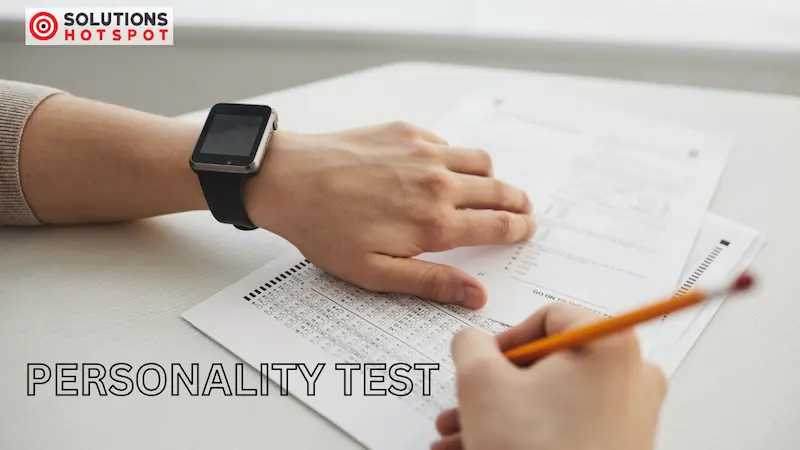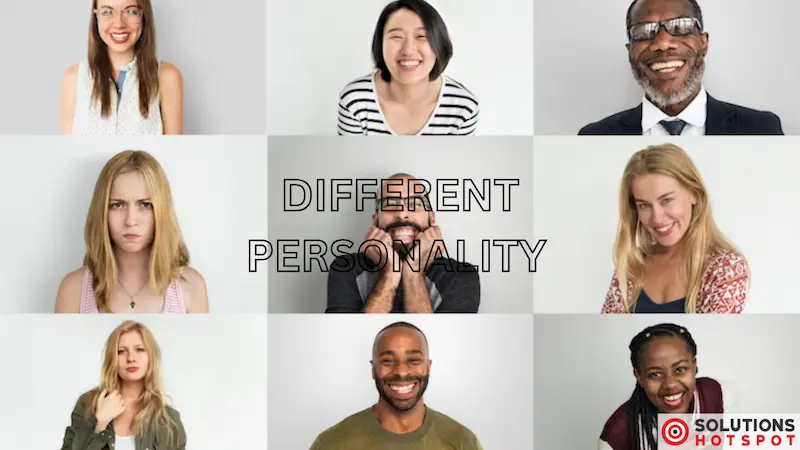I believe in doing the right things; that is my character and personality.
Gianluigi Buffon
Find Your Personality Type: Understanding your personality type is a journey of self-discovery. There are various models and assessments designed to help you explore the intricacies of your personality. One of the most popular and widely recognized is the Myers-Briggs Type Indicator (MBTI). It categorizes people into 16 different personality types based on their preferences in four key areas:
- Extraversion (E) vs. Introversion (I): This dimension reflects whether you gain energy from being around others (extraversion) or from spending time alone (introversion).
- Sensing (S) vs. Intuition (N): It highlights how you gather information – through your five senses (sensing) or by interpreting patterns, connections, and possibilities (intuition).
- Thinking (T) vs. Feeling (F): This facet concerns how you make decisions – through logical analysis (thinking) or by considering the emotional impact on yourself and others (feeling).
- Judging (J) vs. Perceiving (P): It demonstrates your approach to structuring your life – in an organized, decisive manner (judging) or in a more spontaneous, adaptable way (perceiving).


Once you understand where you fall in each of these dimensions, you’ll be able to determine your unique four-letter personality type. For example, if you tend to be more introverted, intuitive, feeling, and perceiving, your MBTI personality type might be INFP.
Taking the MBTI Test
The MBTI test is an invaluable tool in finding your personality type. You can access it through a certified practitioner or take a reliable online assessment. These tests consist of a series of questions that gauge your preferences, and at the end, you’ll receive your four-letter personality type.


It’s essential to be as honest as possible while answering the questions. Remember that there are no right or wrong personality types – every type has its strengths and weaknesses, and no type is better or worse than another.
Understanding Your Personality Type
Once you’ve discovered your personality type, it’s time to explore what it means. You’ll find a wealth of information about your type’s characteristics, strengths, and areas for growth. Understanding your personality type can:
- Improve Self-awareness: Recognizing your natural preferences can help you understand why you react to certain situations in specific ways.
- Enhance Communication: Learning about the various personality types can improve your interactions with others. It enables you to adapt your communication style to better connect with people of different types.
- Support Personal Growth: Recognizing your strengths and weaknesses allows you to focus on personal development in areas that matter most to you.
- Boost Career Satisfaction: Knowing your personality type can help you find a job or career path that aligns with your natural inclinations, ultimately leading to greater job satisfaction.
- Strengthen Relationships: Understanding your personality type and the types of those close to you can improve your relationships. It can provide insights into potential areas of conflict and help you navigate them more effectively.
Remember that your personality type is not set in stone. It may evolve over time as you gain new experiences and develop different facets of your personality. Self-discovery is an ongoing process, and understanding your personality type is just one piece of the puzzle.
Common Personality Types and Their Traits


Let’s delve into the 16 MBTI personality types, with a brief overview of each:
- ISFJ – The Defender: These individuals are known for their dedication, loyalty, and practicality.
- ESFJ – The Consul: They are warm, social, and highly organized, often taking on leadership roles.
- ISTJ – The Inspector: Known for their dependability and strong work ethic, they’re often seen as responsible and dutiful.
- ESTJ – The Executive: These individuals are natural-born leaders, efficient and practical in their approach.
- INFJ – The Advocate: Quiet and intuitive, Advocates are creative and dedicated to making the world a better place.
- ENFJ – The Protagonist: They are charismatic leaders, driven by a desire to inspire and motivate others.
- INTJ – The Architect: Architects are strategic, independent thinkers who excel in solving complex problems.
- ENTJ – The Commander: Commanders are assertive, natural leaders, unafraid to take charge in challenging situations.
- INFP – The Mediator: Mediators are idealistic, compassionate, and guided by their values.
- ENFP – The Campaigner: They are enthusiastic, creative, and inspire others with their infectious energy.
- ISTP – The Virtuoso: Virtuosos are adventurous and practical, known for their hands-on approach to life.
- ESTP – The Entrepreneur: These individuals are energetic, adaptable, and often find success in business and entrepreneurship.
- ISFP – The Adventurer: Adventurers are spontaneous, artistic, and focused on personal experiences.
- ESFP – The Entertainer: They are fun-loving, sociable, and often the life of the party.
- INTP – The Logician: Logicians are curious, logical, and enjoy diving into complex intellectual challenges.
- ENTP – The Debater: Debaters are quick thinkers, often challenging the status quo and generating new ideas.
Identifying your personality type is just the beginning. Next, we’ll explore how to apply this knowledge to your daily life, relationships, and personal growth.
Applying Your Personality Type
Understanding your personality type offers valuable insights, but it’s essential to apply this knowledge to improve your life. Here’s how:
1. Embrace Your Strengths
Embracing your natural tendencies can lead to personal and professional success. Recognize your strengths and use them to your advantage. For example, if you’re an INFP, your creativity and compassion can shine in artistic or caregiving roles.
2. Work on Weaknesses
No personality type is without its challenges. Identify areas where your personality might present difficulties and actively work on improving them. For instance, if you’re an ESTJ and tend to be overly critical, practice being more open and receptive to others’ ideas.
3. Improve Communication
Knowing your personality type can significantly enhance your communication skills. Whether at work or in your personal life, understanding how others perceive and process information can lead to more effective and harmonious interactions.
4. Foster Relationships
Your personality type can influence your compatibility with others. While it’s essential not to stereotype or pigeonhole people based on their type, recognizing potential areas of compatibility and conflict can help you navigate relationships with greater ease.
5. Set Goals
Identifying your personality type can guide you in setting goals that align with your natural inclinations. If you’re an INTJ who enjoys strategic thinking, consider a career that allows you to use this skill to your advantage.
Conclusion
Finding your personality type is a powerful tool for self-discovery and personal growth. It provides a framework to understand your preferences, strengths, and potential areas for development. Whether you’re an extroverted campaigner or an introverted mediator, embracing your personality type can help you lead a more fulfilling and authentic life. So, embark on this exciting journey of self-discovery, explore your unique personality type, and use this newfound knowledge to enhance every aspect of your life. Remember, understanding yourself is the first step towards becoming the best version of you.
How to Find Your Personality Type
FAQ
Q1: What are the different personality types?
A: There are several personality typing systems, such as the Myers-Briggs Type Indicator (MBTI), the Big Five, and the Enneagram, each categorizing individuals based on various traits and characteristics.
Q2: How can I find out my personality type?
A: You can take online assessments, quizzes, or consult with a psychologist to determine your personality type. These tools help identify your unique traits and tendencies.
Q3: What’s the significance of knowing your personality type?
A: Understanding your personality type can enhance self-awareness, improve relationships, and guide personal growth and development.
Q4: Can your personality type change over time?
A: While your core personality traits tend to remain stable, certain aspects can evolve over time due to life experiences and personal development efforts.
Q5: Are there any careers or professions better suited for specific personality types?
A: Yes, certain careers may align better with particular personality types. For example, extroverts might thrive in roles requiring social interaction, while introverts may excel in more solitary tasks.

